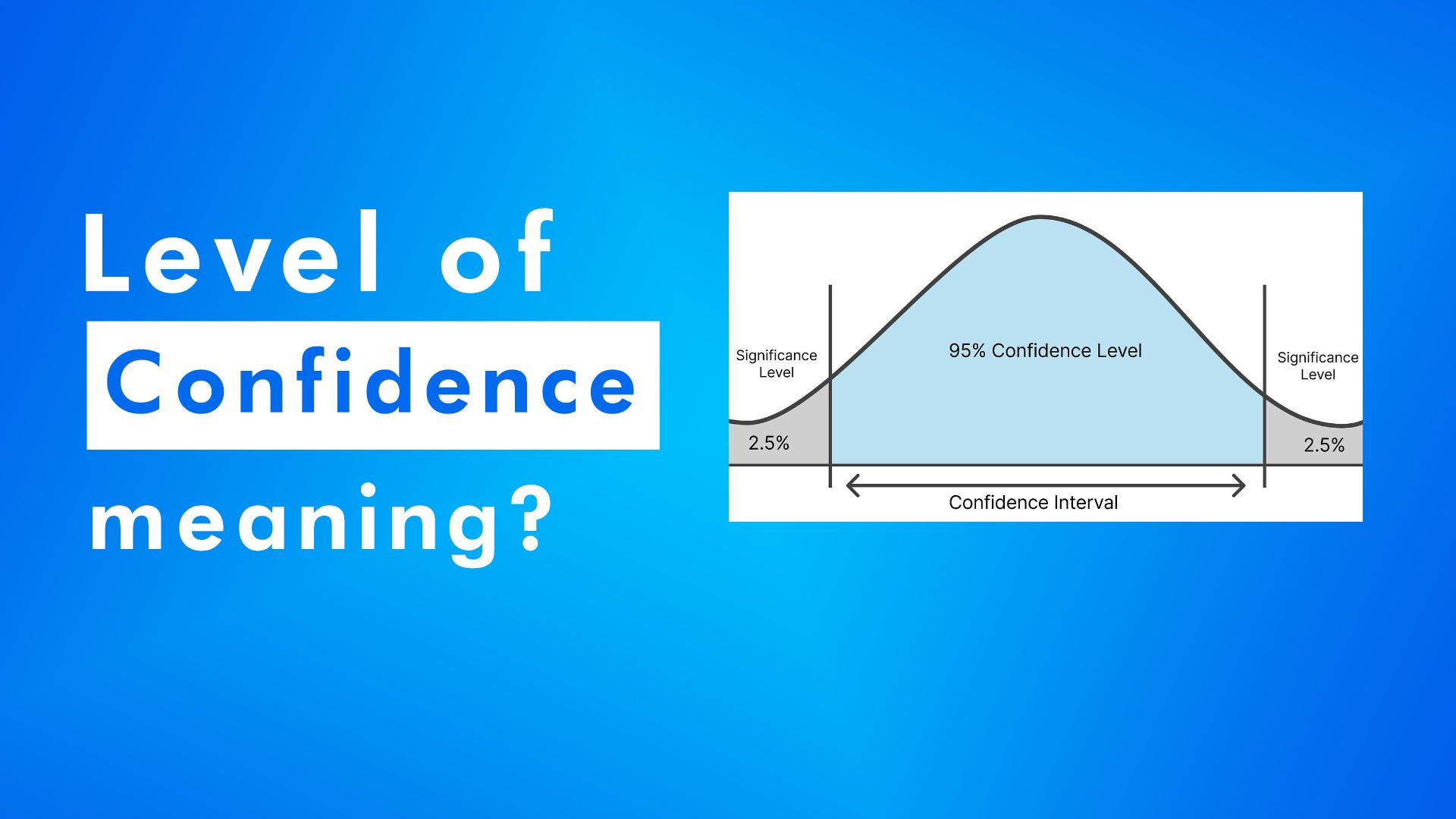The term “level of confidence” refers to the probability or certainty that something is true or accurate. It’s often expressed as a percentage. Here’s a breakdown of the concept:
Understanding Confidence:
Imagine you’re flipping a fair coin. There’s a 50% chance it will land on heads and a 50% chance it will land on tails. In this scenario, you can be 50% confident that the next flip will result in heads.
Confidence Levels in Statistics:
- High Confidence: A high level of confidence (often expressed as 90%, 95%, or even 99%) indicates a strong belief that the result is accurate. In statistical analysis, this means there’s a very low chance that the finding is due to random chance.
- Low Confidence: A low level of confidence (around 50% or less) suggests there’s a significant chance the result might not be entirely accurate. More data or analysis might be needed to improve confidence.
Confidence Intervals:
The term “level of confidence” is often used alongside “confidence interval.” A confidence interval is a range of values that likely holds the true population parameter (e.g., the average height of all adults). The level of confidence indicates how certain we are that the true value falls within this range.
Applications of Confidence Levels:
- Scientific Research: Researchers use confidence levels to assess the reliability of their findings. A high confidence level strengthens the conclusions drawn from the research.
- Polls and Surveys: Polls typically report the margin of error, which is related to the confidence level. A smaller margin of error indicates a higher level of confidence that the poll results accurately reflect the population’s opinion.
- Everyday Life: We use confidence levels informally as well. For example, you might say “I’m 80% confident it will rain tomorrow” based on weather forecasts.
In essence, the level of confidence helps us quantify the degree of certainty we have in something, be it a scientific finding, a survey result, or even an everyday prediction.




